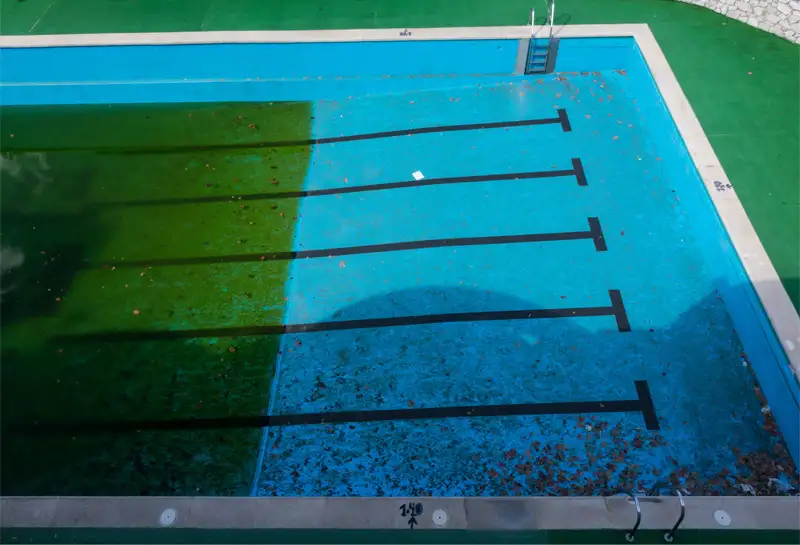
Home » Pool Shop Tips » Pool Algae and Effective Solutions

Algae are microscopic plants that thrive in aquatic environments, including swimming pools. They come in various forms, such as green, black and mustard algae. While they may seem harmless, these tiny organisms can quickly turn your sparkling pool water into a murky, unsightly mess.
Algae formation is influenced by a combination of factors, including sunlight, warm temperatures and imbalanced water chemistry. When these conditions are present, algae spores can multiply rapidly, creating a breeding ground for the green invaders.
Aside from the obvious aesthetic concerns, pool algae can pose health risks. Some types of algae, such as blue-green algae, can produce toxins harmful to humans and pets. Additionally, algae can make pool surfaces slippery, increasing the risk of accidents.
Skin Irritation:
Pool algae, especially the green variety, can cause skin irritation upon contact. Swimmers may experience redness, itching, or rashes, which can be attributed to the toxins released by the algae.
Respiratory Issues:
In poorly maintained pools with excessive algae growth, the release of airborne algae spores becomes a concern. Inhalation of these spores may lead to respiratory problems, particularly in individuals with pre-existing conditions like asthma or allergies.
Eye Irritation:
Red, itchy, or irritated eyes are common symptoms of exposure to pool algae. The irritants produced by algae can compromise the delicate tissues of the eyes, causing discomfort for swimmers.

Cryptosporidium:
Algae-infested water can serve as a breeding ground for harmful microorganisms like Cryptosporidium, a parasite resistant to common disinfectants. Ingesting or coming into contact with contaminated water can lead to severe gastrointestinal issues.
E. coli and Giardia:
Algae blooms can provide a conducive environment for the growth of bacteria such as E. coli and Giardia. Swimmers may unknowingly ingest these pathogens, leading to gastrointestinal infections with symptoms ranging from stomach cramps to nausea.
1. Green Algae:
– Appearance: Often forming a greenish tint on pool walls and floor.
– Causes: Sunlight exposure, poor circulation and unbalanced water chemistry.
– Prevention and Treatment: Regular shock treatments, proper filtration and maintaining balanced pH levels.
2. Yellow/Mustard Algae:
– Appearance: Yellow or mustard colored spots on pool surfaces.
– Causes: Poor sanitation, inadequate water circulation and the presence of organic debris.
– Prevention and Treatment: Brushing pool surfaces, using algaecides and maintaining proper chlorine levels.
3. Black Algae:
– Appearance: Dark black or blue green spots, usually forming a protective layer.
– Causes: Poor water circulation, low chlorine levels and inadequate pool maintenance.
– Prevention and Treatment: Aggressive scrubbing, using specialised algaecides and maintaining proper chlorine levels.
Poor Water Circulation:
– Stagnant water provides an ideal breeding ground for algae. Regularly check and clean your pool’s circulation system to ensure water is properly circulated.
Unbalanced Water Chemistry:
– Improper pH, alkalinity, or calcium hardness levels create an environment conducive to algae growth. Regularly test and adjust these parameters.
Inadequate Sanitation:
– Low chlorine levels or ineffective sanitisation methods can lead to algae blooms. Maintain proper sanitizer levels and shock your pool regularly.
Organic Debris:
– Leaves, grass and other organic debris serve as nutrients for algae. Skim the pool regularly and clean out skimmer baskets to prevent buildup.
Regular Maintenance:
– Perform routine pool maintenance tasks such as vacuuming, skimming and cleaning filters to prevent the accumulation of organic matter.
Proper Filtration:
– Invest in a quality filtration system and ensure it operates efficiently to remove particles that can fuel algae growth.
Optimal Water Chemistry:
– Regularly test and balance pH, alkalinity and calcium hardness levels to create an environment inhospitable to algae.
Sunblock and Shade:
– Consider using pool covers during extended periods of non use and planting trees or installing shade sails to limit sunlight exposure.
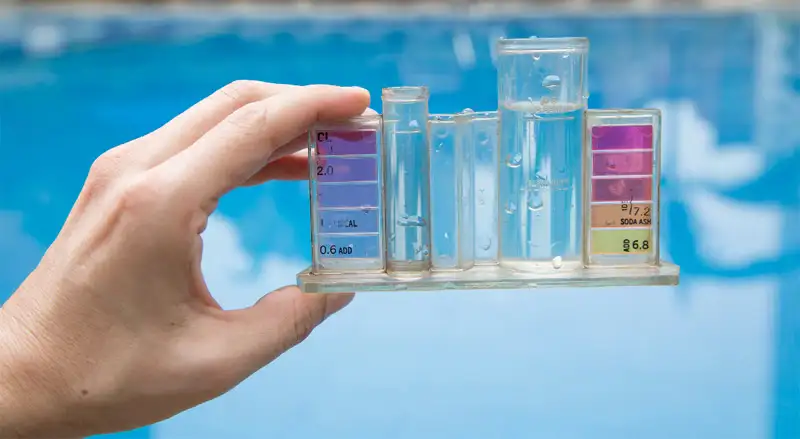
Shock Treatment:
– Use a high quality pool shock to raise chlorine levels and eliminate existing algae. Follow product instructions carefully.
Algaecides:
– Choose the appropriate algaecide based on the algae type present in your pool. Follow recommended dosage and application guidelines.
Scrubbing and Brushing:
– Physically remove algae by scrubbing pool walls and surfaces. This is particularly important for stubborn black algae.
Professional Assistance:
– In severe cases, consult with Gold Coast Pool Cleaning and Maintenance Service to identify and address underlying swimming pool issues.
Conclusion:
While pool algae may seem like an inevitable nuisance, armed with the right knowledge and proactive measures, you can maintain a sparkling clean pool throughout the swimming season. Regular maintenance, proper water chemistry and prompt treatment are key to keeping the green menace at bay, ensuring that your pool remains a refreshing haven for relaxation and enjoyment.
For those facing persistent algae challenges, consider reaching out to Gold Coast Pool Cleaning. Their experienced professionals offer specialised services designed to identify and tackle the root causes of algae infestations. With a commitment to maintaining pristine pools, Gold Coast Pool Cleaning stands ready to transform your pool into the clear and inviting oasis you deserve. Say goodbye to algae induced headaches and hello to a revitalised and sparkling pool experience. Call us on 07 56198000 or contact us below.
We will get back to you with a price for a full algae pool clean, pool shock treatment, water test and balancing and tuning of your pool system. Fill in the details below for your no obligation free quote or alternately call us on 07 5619 8000
The fastest way to kill pool algae is by using an effective algaecide. Choose a broad spectrum algaecide that targets various types of algae. It’s essential to follow the product’s instructions for the best results.
While it’s challenging to completely eradicate algae overnight, you can take immediate action to improve the situation. One effective method is to shock your pool with a high dose of chlorine. This process, known as “shocking,” helps eliminate algae and restore water clarity.
Chlorine typically takes 24 to 48 hours to kill algae in a pool. The exact time may vary depending on the severity of the algae infestation and the effectiveness of your shock treatment.
To clear a green pool quickly, you can use a combination of shock treatment, algaecide, and proper filtration. Regularly back washing your filter and ensuring optimal water circulation can accelerate the clearing process.
Several factors can contribute to algae growth even with high chlorine levels. Poor water circulation, inadequate filtration and imbalanced pH levels are common culprits. Regularly testing and adjusting your pools chemical balance is crucial for preventing algae outbreaks.
Natural remedies like adding baking soda, borax, or even vinegar can help control algae growth. These substances alter the water’s pH and alkalinity, creating an environment less favorable for algae development.
Yes, vacuuming is an effective method to remove algae from a pool. Ensure your vacuum is equipped with a fine mesh or algae bag to capture even the smallest particles.
If you don’t have a vacuum, you can use a pool brush to scrub the algae off the pool surfaces. Follow up with thorough skimming and backwashing to remove dislodged algae particles.
While algae itself may not cause permanent stains, the chemicals used to eliminate them might. Promptly address algae issues to minimize the risk of staining, and use pool safe stain removers if necessary.
Baking soda can help control algae by raising the pools alkalinity. However, it’s not a standalone solution. Combine baking soda with other preventive measures for comprehensive algae control.
Vinegar, with its mild acidic properties, can help combat algae. Add vinegar in moderation to adjust the pH level and discourage algae growth. However, relying solely on vinegar is not sufficient for complete algae eradication.
If chlorine is ineffective against algae, it may be due to insufficient chlorine levels, poor water circulation, or imbalanced pH. Conduct a thorough water test and address any issues before reapplying chlorine.
Several factors contribute to rapid algae growth, including warm temperatures, sunlight exposure, imbalanced water chemistry and insufficient sanitiser levels. Regular maintenance and monitoring can prevent algae from proliferating.
Ironically, excessive chlorine levels can contribute to algae growth. High chlorine concentrations may indicate an imbalance in other water parameters, creating an environment conducive to algae development.
Algae rising to the pool surface can result from the gases produced during the decomposition of dead algae. Adequate filtration and skimming can help remove floating algae and prevent them from resurfacing.
Shocking your pool is a crucial step in eliminating algae. Choose a high quality pool shock product and follow the recommended dosage for your pool size. Repeat shock treatments if necessary to fully eradicate algae.
Saltwater pools naturally deter algae growth due to the saline environment. However, adding salt to a traditional chlorine pool may not provide sufficient algae control on its own. It’s essential to maintain proper chlorine levels and use algaecides as needed.
Yes, a green pool can be cleared with the right combination of shock treatment, algaecide, and filtration. Regular testing, chemical adjustments, and proper maintenance are key to preventing future algae outbreaks.
Swimming in a green pool is not advisable due to potential health risks and poor water visibility. Wait until the pool is clear, properly balanced and safe for swimming before taking a dip.
Yes, low pH levels can contribute to algae growth. Maintain a balanced pH between 7.4 and 7.6 to create an environment less favorable for algae development.
Running your pool filter for at least 8 to 12 hours a day is generally recommended. However, factors like pool size, bather load and equipment efficiency may influence the optimal filtration duration.
The amount of shock needed to clear a green pool depends on the pool size, severity of the algae infestation, and the specific shock product used. Follow the manufacturer’s guidelines for dosage instructions.
A green pool after adding shock may indicate a severe algae infestation. The shock treatment may be breaking down the algae cells, releasing chlorophyll and causing the water to turn green. Continue with regular maintenance and filtration to clear the pool.
Baking soda, also known as sodium bicarbonate, helps stabilise the pool’s alkalinity. By maintaining proper alkalinity levels, baking soda assists in preventing drastic pH fluctuations, which in turn creates an environment less conducive to algae growth.
In general, it is advisable to balance the pool’s pH levels before adding algaecide. Start by adjusting the pH to the recommended range of 7.4 to 7.6. Once the pH is within the desired range, introduce the algaecide following the manufacturer’s instructions for proper dosage.
Yes, if the pH levels in your pool are too high, it can create an environment where algae can thrive. Monitoring and maintaining the correct pH range is crucial in preventing both algae growth and other water quality issues.


Unveiling the Green Menace: A Comprehensive Guide to Understanding and Combatting Pool Algae.
Imagine stepping into your backyard oasis, ready to take a refreshing dip in your crystal clear swimming pool, only to be met with an unsightly green hue covering the water’s surface. The culprit? Pool algae a common, yet persistent problem that can turn your dreamy pool day into a nightmare. In this comprehensive guide, we will look into the world of pool algae, exploring its types, causes, prevention and effective treatment methods.
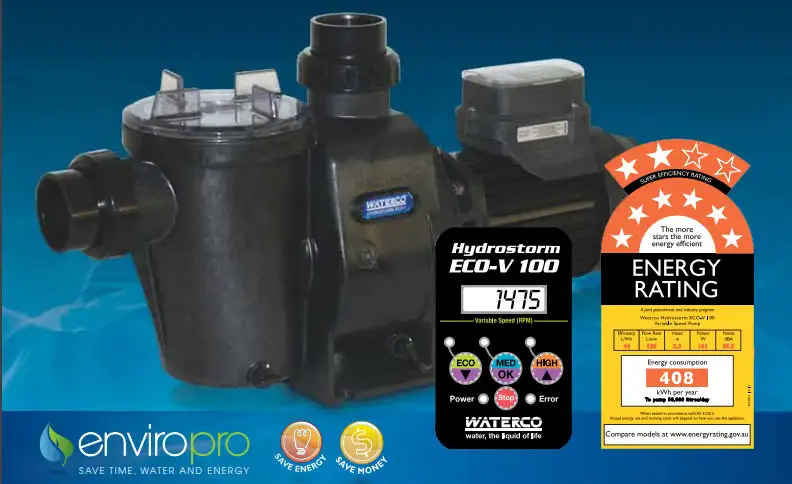
Comparing Eco Variable Speed Pool Pumps vs Single Speed.
Maintaining a crystal clear swimming pool requires careful consideration of the equipment you use. One crucial component in this regard is the pool pump, which plays a pivotal role in circulating water and keeping your pool clean. When it comes to pool pumps, two popular choices are Eco Variable Speed Pool Pumps and Single Speed Pool Pumps. In this in depth article, we will explore how these pumps work, analyse whether they are worth the investment, compare their running costs and shed light on how Gold Coast Pool Cleaning can professionally convert your system.
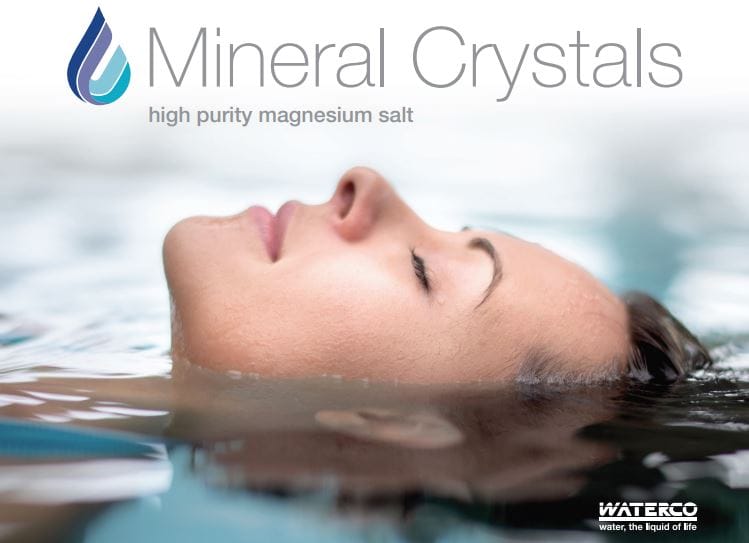
The Complete Guide to Magnesium Mineral Pools: Transform Your Oasis with Gold Coast Pool Cleaning. In the realm of pool wellness, there’s a rising star that promises not just a refreshing dip but a rejuvenating experience, the magnesium mineral pool. As awareness of the health benefits of magnesium grows, more pool owners are considering the switch from traditional chlorine based pools to the marvel of magnesium. In this comprehensive guide, we’ll delve into everything you need to know about magnesium mineral pools, why this transformation is worth considering and how Gold Coast Pool Cleaning can professionally convert your pool into a magnesium oasis.

Unveiling the Power of Pool Shock: A Comprehensive Guide to Pool Maintenance.
A crystal-clear pool is the epitome of summer bliss, but maintaining that sparkling oasis requires more than just routine cleaning. Enter the secret weapon in every pool owner’s arsenal the pool shock. In this guide, we’ll delve into the reasons why your pool might need a good shock, what it entails and how Gold Coast Pool Cleaning can professionally elevate your pool maintenance game.
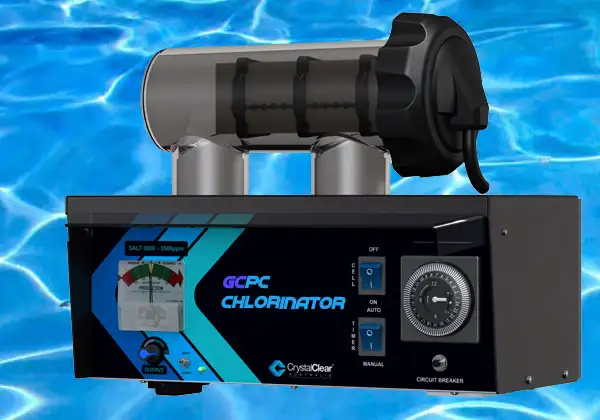
When it comes to choosing the perfect swimming pool for your backyard oasis, the decision between a traditional chlorine pool and a saltwater pool is often at the forefront. While both options have their merits, there’s a growing trend towards saltwater pools for several compelling reasons. Here, we’ll explore the numerous benefits that make saltwater pools an attractive choice for those seeking a refreshing and eco friendly swimming experience.
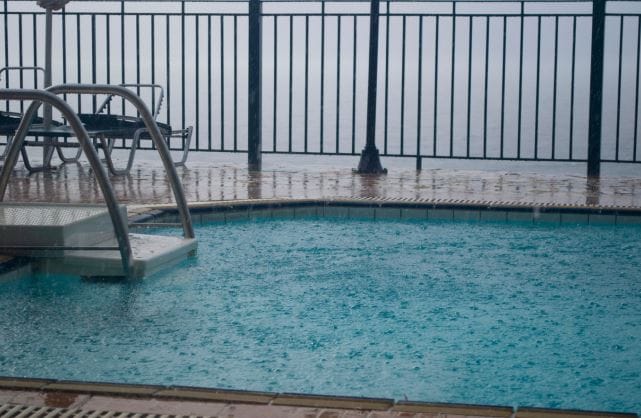
Discover the aftermath of unprecedented storms in Queensland’s Gold Coast, where power outages wreak havoc not just on homes but also impact swimming pools. Prolonged power loss disrupts essential pool systems, rendering pumps idle and chlorinators inactive. Heavy rainfall, reaching up to 300mm in 12 hours, further compounds issues by introducing debris and diluting chemical balances. Gold Coast Pool Cleaning emerges as a lifeline, offering emergency cleanup, precise water testing, equipment inspections, and algae treatments. Beyond recovery, proactive maintenance tips ensure your pool remains a safe oasis amidst the chaos. Trust Gold Coast Pool Cleaning for a swift, effective pool recovery post-storm.